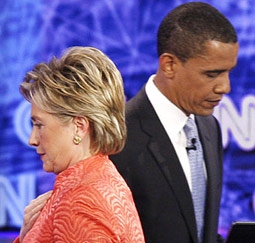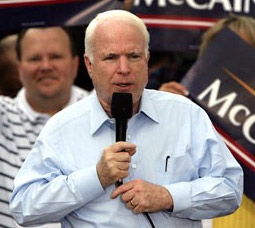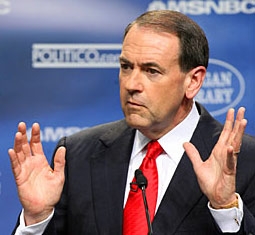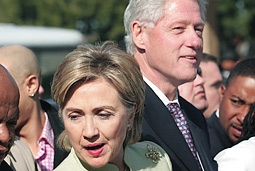




To the added drama of this year’s Presidential race, it couldn’t be more fitting that all eyes were on the political capital of the United States, Washington D.C. In recent decades, the Potomac Primaries, as it is nicknamed, have been overlooked in elections. For once in political history it isn’t being over shadowed by Super Tuesday, and instead, the outcome holds some considerable weight. The results indicate an early prediction for the potential Presidential nominations for both parties.

As expected, Barack Obama managed another sweep in Maryland, Virginia and The District of Columbia. After winning this past weekend’s elections in Louisiana, Nebraska and Washington State, Barack Obama added to his string of victories. The results came rolling in beginning with Virginia. It became evident soon after, that Hilary Clinton’s momentum was losing steam. According to the exit polls, Barack Obama once again controlled a majority of African American votes, and more surprisingly, split women and White voters. The gender and racial divide was not a considerable factor in this Tuesday’s election. Hillary Clinton’s strategy to rely on professional women and Latinos to boost her to victory was not successful this time around. She did however manage to do well in rural areas.

Meanwhile, Barack Obama won delegates in populated areas where affluent Americans resided, such as Fairfax County, a wealthy Washington D.C. suburb. It is evident that his appeal is now established across the board among various demographics. Inevitably, this is grounds for concern for the Clinton campaign. In the midst of defeat, news emerged regarding the departure of Hillary Clinton’s deputy campaign manager Mike Henry, a day after campaign manager Patti Solis Doyle resigned. The most significant outcome of the Virginia primary was the narrow lead that Barack Obama gained for the first time in this Presidential race. He continued collecting delegates by large margins with his impressive wins in the District of Columbia and in Maryland.

On the Republican side, John McCain also managed a sweep. Initially, it seemed that the race for delegates would be a competitive one. Mike Huckabee once again stirred up trouble for his rival in Virginia, as he prevented McCain from winning by an overwhelming majority. It seemed as if Mike Huckabee was going to undermine John McCain’s status as a front runner. It was a tight race due to many different factors. Firstly, many republicans opted to side with the Democrats, indicating the extent of division among their own party. The voter turnout for Republicans was also much lower than the Democrats and many John McCain supporters, assuming he would win easily, did not show up at the polls. John McCain, being a war hero himself, had the support of many seniors and veterans while Huckabee was backed by born again evangelicals and far right conservatives.

In the state of Maryland, voting results had a different outcome. For the first time, John McCain carried a higher percentage of conservatives. His success illustrates a weakness in his opponent. Mike Huckabee’s main pitfall is that he is a regional candidate. His success is primarily a result of conservative support from mainly the southern states. For this reason, he did not perform well in Washington D.C.

The Potomac Primaries allowed John McCain to extend his lead and further establish himself for the party’s eventual presidential nomination. He is now much closer to the finish line. Knowing that Mike Huckabee is no longer a threat will allow McCain to focus on the November elections rather than expending further resources on securing the nomination. Mike Huckabee will likely continue to challenge his rival for the sake of his supporters.
The Democrats have a much different scenario. Although Obama is ahead of Clinton by a narrow margin for the first time, the race is still almost even. The upcoming primaries will be significant for both candidates. Obama is looking to win in Wisconsin and will take with him the momentum he is now building. Clinton on the other hand is preparing for the Texas, Ohio, and Pennsylvania elections. She will also focus her attention on the upcoming debates to try and retain the lead and win back voters.
The super delegates may play an important role in determining the Democratic nominee if neither candidate can collect enough delegates to claim the democratic presidential nomination. To avoid a super delegate decision, it is imperative for a decisive front runner to emerge soon.
While the Republicans seem to be coming to a close on their nomination, the Democrats are still, once again, neck and neck.
